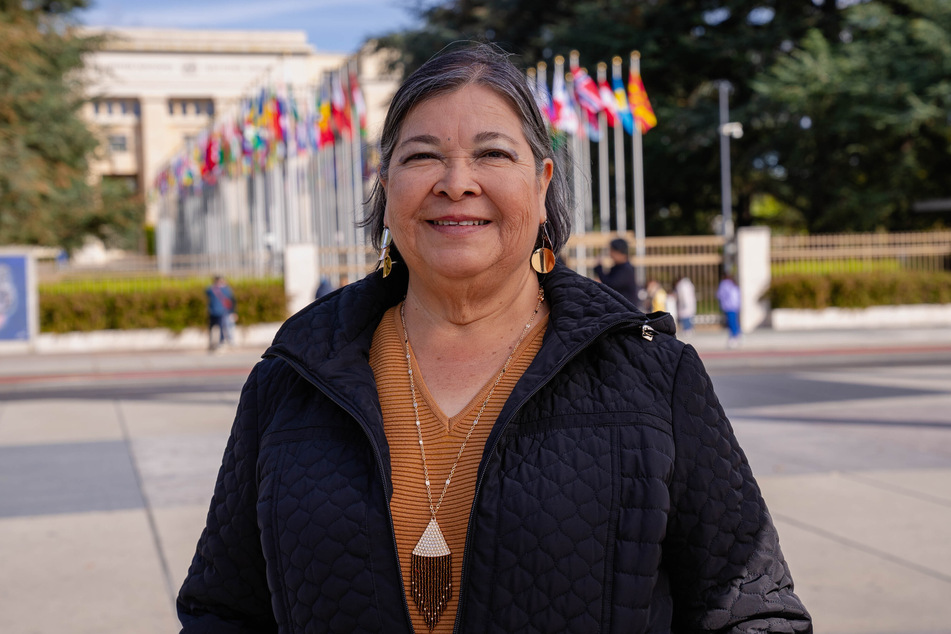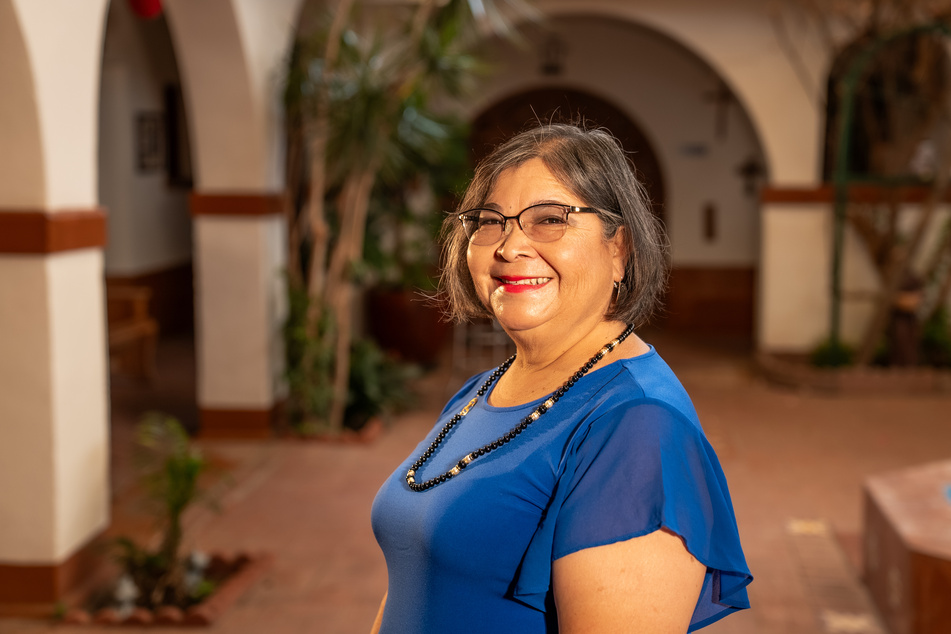South Texas organizer describes border communities as "prisons without bars" at United Nations
Geneva, Switzerland - Disturbed by the increased militarization of her South Texas community, Ramona Casas crossed an ocean to speak at the United Nations this week about racist practices keeping many immigrants in a near-constant state of fear. She spoke with TAG24 about her fight.

Casas, of the Alamo, Texas-based non-profit ARISE Adelante, traveled to Geneva to testify before the UN Human Rights Committee on her experiences with racist violations in the Rio Grande Valley. She was one of 16 members of the Start With Dignity delegation campaigning to end police violence in borderlands communities and update the use-of-force standard for law enforcement.
The longtime community organizer told the committee that extreme racial profiling, incessant ID checks, and coordination among law enforcement agencies are an everyday occurrence for Latino people living within the 100-mile border enforcement zone, especially for those of darker-complected skin tones.
The situation is so extreme that Casas, who was born in Mexico but has US citizenship, must carry her passport with her every time she steps outside her house.
"I have to always have it with me because if we are stopped or detained by whatever border or police officer, they will immediately ask us about our legal status, and they sometimes don't listen when we tell them the truth," Casas told TAG24 NEWS in Geneva.
If Casas does not have her passport, she could be detained and thrown in jail, despite being an American citizen. Non-citizens who do not have a passport or other documentation face the threat of deportation and possible separation from their families.
These conditions have very real impacts on the ability of South Texas residents to go about their daily lives, with many afraid to go to the park, to church, or to other public spaces. The dire situation has left Casas feeling like she is living in a "militarized zone" where her very existence is criminalized.
"It makes us immigrants feel we lack respect and dignity because we feel like we are in a prison without bars. But it's still a prison because many of our communities can't leave."
Ramona Casas fights for immigrants' right to be treated with dignity and respect

The militarization of South Texas communities will only get worse as federal and state authorities continue to invest in law enforcement and the border wall rather than prioritizing the needs of everyday people.
Many South Texas cities and towns are lacking basic services like public transportation and access to quality health care as racial profiling and criminalization of asylum continue to cost lives. President Joe Biden's recent decision to waive 26 environmental laws in order to fast-track border wall construction is only expected to make matters worse.
"Among us immigrants, there is a lot of solidarity, but with these oppressive federal and state laws, we suffer," Casas said. "That's why I'm here [in Geneva], to show that what's happening in our communities is oppression and a lack of respect for the dignity of immigrants."
Casas' testimony before the Human Rights Committee painted a bleak picture of the US' human rights record in the borderlands, but all that can change if communities come together to fight for what they deserve.
"I want everyone to know that it doesn't matter where we come from. We have rights as human beings. It's important to know our rights and not allow ourselves to be abused, intimidated, and disrespected," she said.
"We've had enough of being discriminated against because of our skin color and our accent and for being immigrants. We want the right to be human, treated with respect and dignity."
Cover photo: Start With Dignity

